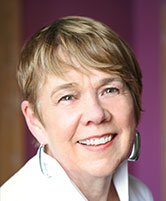
Dr Mary L. S. Vachon
PhD, RN
Mary L. S. Vachon, is a nurse, psychotherapist, author and cancer survivor who has given over 1,600 lectures around the world on issues related to occupational stress, cancer, bereavement, survivorship,
and spirituality. She has written over 170 publications, including the chapter on ‘The Emotional Care of the Dying Person’ for the
Oxford Textbook of Palliative Medicine (editions 1–4), and has written the chapters on occupational stress in oncology and palliative care specialists in several leading international textbooks for physicians, nurses and other health professionals. Dr Vachon has worked at Massachusetts General Hospital, the Clarke Institute of Psychiatry, and Sunnybrook Health Sciences Centre. She is currently a Psychotherapist in Private Practice; Professor in the Departments of Psychiatry and Public Health Sciences at the University of Toronto, and Clinical Consultant at Wellspring. She is the recipient of many awards, including the ‘National Hospice and Palliative Care, Distinguished Researcher Award’ in 2001 for her continued contribution to the field of palliative care from the beginning of the specialty until the present time; and the ‘Lifetime Achievement Award’ in 2008 from
The International Journal of Palliative Nursing.
Keynote Presentation
Empathy and Compassion in the Care of the Bereaved: The Lived Experience
Dr Vachon has been researching, studying and writing about stress in the care of the critically ill, dying and bereaved for five decades. Many of the issues that were of concern to staff in the 1970s, such as overwork and challenges with patients, families and with colleagues, are still a concern. Over time, there have been a variety of
concepts used to describe the experience of caregivers, including: occupational stress, burnout, battle fatigue, compassion fatigue, moral distress and empathy fatigue. Current neuroscience research is exciting in that it potentially helps us to understand more clearly some of the challenges in our relationships with clients and our interface with our work environment. Current neuroscience research shows that there is a difference in the brain between empathy
and compassion. Some question whether what has been called
compassion fatigue should in fact be called empathy fatigue. Other
research shows the importance of early attachment and resilience
in later bereavement. As professional caregivers and volunteers,
we must consider the impact of our own previous experiences with
attachment, loss and grief on our experiences with our bereaved
clients and our workplace and what meaning-making can we
engage in to inform our practice and workplace. In this presentation,
Dr Vachon will role model reflective practice in her role as a clinician
working with the seriously ill and bereaved, and will integrate recent
neuroscience and other research that can inform our work as
as clinicians. The presentation will conclude with exciting interventions
being done to assist clinicians to become more compassionate with themselves and their clients.
Dr Vachon will present this session as part of the Conference program on Thursday, 12
th May 2016.